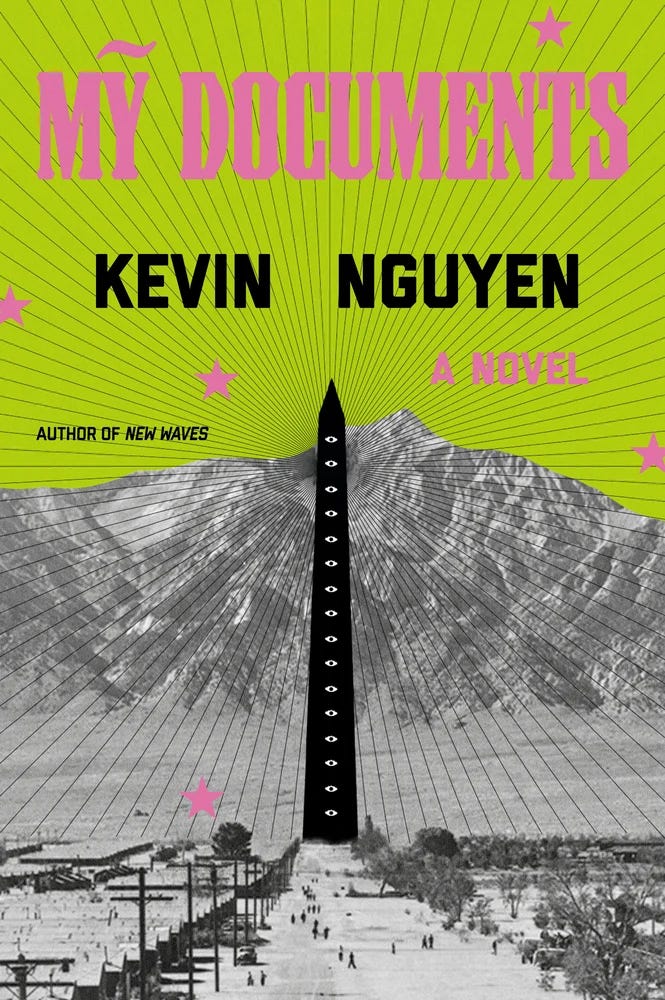À la carte (May 20, 2025)
Books for Memorial Day Weekend, a second season, and a new skincare routine (that I wish I was getting paid to recommend)
To those of you who are still reading these recommendations after I inundated you with Holocaust content a few weeks ago, thanks for sticking around. I have one more Holocaust book on my nightstand, but have decided to take a break before turning to it.
Fortunately, only one of my cultural recommendations this week involves a concentration camp. The others (another book, a second season of a TV show, and some skincare products) are considerably lighter, even though two of them involve a mysterious death.
Now for the humiliating part. Paid subscribers get to read the full list of cultural recommendations, as well as longer monthly-ish personal essays. For $50/year or $5/month, you can allow me to keep writing Turtleneck Season. But for FREE, you can like this post, or anything that I post. I don’t love the way in which Substack is gamifying this platform, but unfortunately I have decided to play this game, because this game will hopefully help me get an agent, which will hopefully help me publish a book. Likes on a post drive the algorithm, causing it to be suggested to more viewers, allowing me to gain more followers.
For a brief moment a few weeks ago, Turtleneck Season was ranked 97th in Literature Substacks by the Substack algorithm. I’ve probably never been prouder of any professional accomplishment in my life. Help me to get to 96th! If you ever like something that I write, please consider clicking the heart button. It means so much for the algorithm, but more importantly, it means so much to me.
Without further ado.
A book
In the 21st century, dystopian fiction no longer needs to be set far in the future. Late capitalism and our political moment offer a credible backdrop for speculative fiction that keeps one foot in the present and steps one foot forward into a future that feels like could materialize next week. Kevin Nguyen’s Mỹ Documents, published last month, so straddles our currently reality—but one in which a series of 9/11-style terrorist attacks result in the rounding up and indefinite detention of Vietnamese-Americans. The novel re-imagines the internment of Japanese-Americans for the 21st century—with increased technological surveillance by agents of a Department of Homeland Security-type agency, as well as technologically-enhanced methods of resistance. (Perhaps the most unbelievable thing about this premise is that the fictional presidential administration is content to detain, and not deport, the country’s Vietnamese-American population.) The novel follows four half-siblings, only two of which are “full” Vietnamese-American and end up incarcerated at an internment camp. The other two remain in an outside world that mirrors our own, with one working at Google and one working in a Buzzfeed-esque newsroom.
Despite the brutality of its subject matter, Mỹ Documents is a heartfelt, family novel, even though its characters sometimes feel more like thinly-drawn archetypes than real people. But I was drawn in not by the characters, but by the eerily-believable thought experiment posed by the novel. Nguyen wields fiction to force us consider what it will look like if the U.S. caves to xenophobia and ethnonationalism and incarcerates its own. (But in the months since Nguyen handed in his manuscript, this question has ceased to be hypothetical, with people being abducted in broad daylight by undercover agents and disappearing to detention facilities without being trackable by their families or attorneys.) I found the most interesting question posed by the novel to be the question of a journalist’s ethical duties when reporting on resistance efforts. This is something I’ve often wondered when thinking about reporting on how women around the country are procuring the abortion pill. Which prevails? The journalist’s professional responsibility to tell the truth, or ethical responsibility to protect her sources? How must the journalist balance her desire to showcase the full humanity and strength of her subjects without risking a crackdown that will undermine the resistance efforts being documented? Maybe it’s telling that, as a white person, I was haunted by this ethical quandary of a character on the outside rather than those on the inside. But as Nguyen’s novel underscores, who ends up labeled a political enemy, even when line drawing is purportedly based on race or ethnicity, is often arbitrary. (Thanks to Claire at Rich Text for the recommendation.)
Keep reading with a 7-day free trial
Subscribe to Turtleneck Season to keep reading this post and get 7 days of free access to the full post archives.




